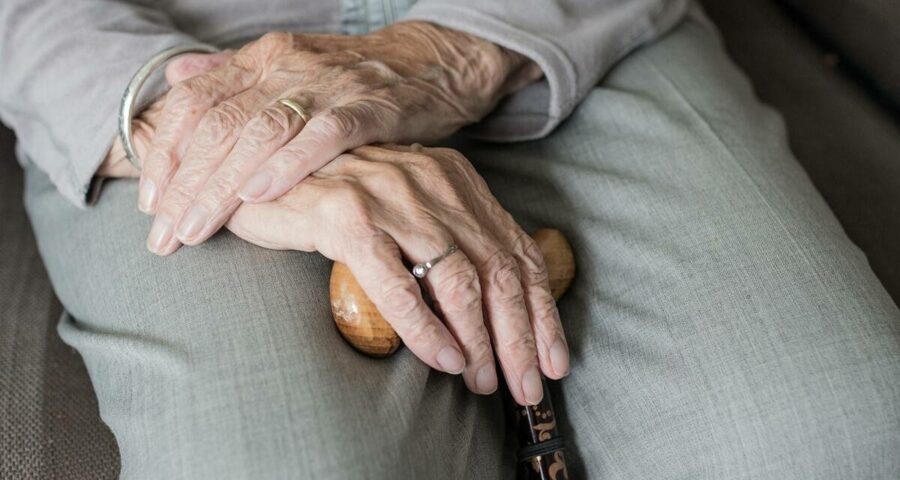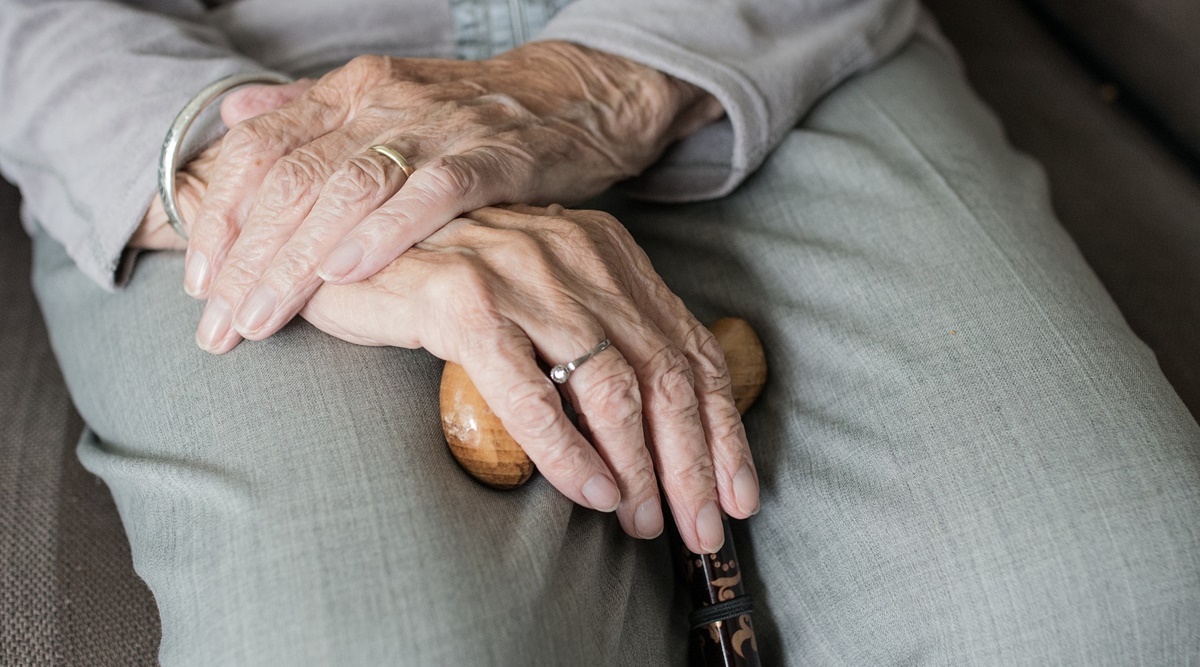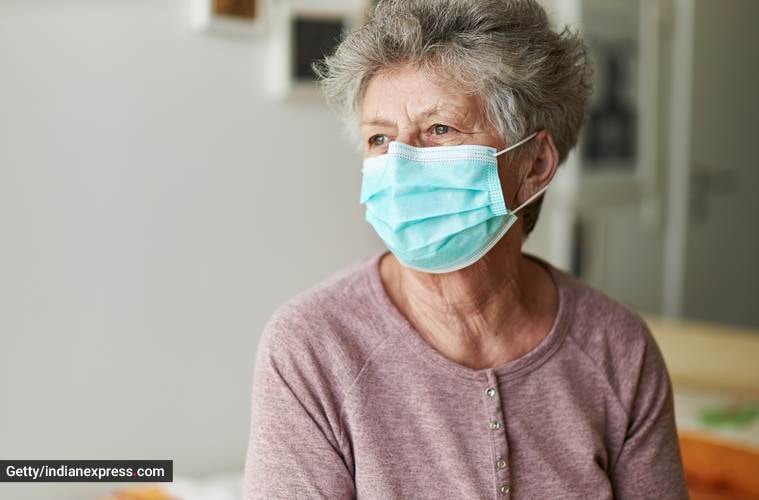The elderly are the most vulnerable amid pandemic due to pre-existing conditions and comorbidities, requiring immediate medical intervention
Before the pandemic, it was only normal for people to act neighbourly if someone took ill or needed some kind of assistance. Post-Covid, everything changed, making social distancing the necessity of the hour. In such circumstances, how did senior citizens, who live independently in communities, cope with the changes?
On World Senior Citizen Day, observed every year on August 21 to raise awareness around issues that impact older adults including mental well-being, we spoke with some of those in senior citizen living communities on their pandemic experiences, and the services that such spaces offer.
Notably, the elderly are the most vulnerable due to their pre-existing conditions and comorbidities, at times even requiring immediate medical intervention. According to a survey titled State of Seniors conducted in October-November 2020 by Antara Senior Living Homes and Access International, the senior population in India is fast growing with over 20 million elders who stay alone. It added that the number is slated to rise in the next two decades.
How did the elderly manage amid pandemic?
Coimbatore-based Dr Jyotsna Codati, who suffers from an autoimmune disorder, lost her husband three months prior to the pandemic lockdown in March 2020. “My children live abroad. Like everyone else in the world who were fighting their own battles to keep their families safe, occupied, and entertained, I also had to keep myself safe,” Dr Codati, who has been living at Columbia Pacific Communities, a senior citizen living community, said.
She began with pandemic precautions as a first measure and was in home isolation till April 2021 until she had her second dose of vaccination. “I scrupulously used a mask and advocated for using one. I also advocated for social distancing and when I found people not taking me seriously, I isolated myself in my home and remained so till April 2021. My home always remained well-ventilated. I opted for RT-PCR so that the community feels safe when I do mix with them. I spend my time gardening and reading and writing,” she said, adding that she has now retired from medical service.
S R Siddiqui, a senior citizen living at Antara Care Homes made sure he was in constant touch with a doctor during the peak of the pandemic. “For any elderly, it’s a hassle to keep track of numerous medicines, appointments, and diet restrictions. I am constantly in touch with a doctor and medical staff who have been very understanding in helping me with my situational needs,” he said.
Some others even tried online and contactless delivery for their essentials. “I have several doctor friends scattered all over the globe (who are also retired) and thanks to WhatsApp, I keep in touch with them. Passers-by in front of my house frequently find me glued to my phone in animated conversations. My family calls every single day and 6-9 in the evening is strictly family time,” described Dr Codati.
Why do the elderly choose to stay alone?
While joint families have long survived in India, with improved access to technology and better living standards, seniors are increasingly preferring to live independently, in their own or rented homes, according to the 2020 survey which collected responses from North, South, and West of India, and stated “77 per cent of seniors are currently living independently in their own/rented houses”.
“The upward growth projections clearly signify the role of dependable services in catering to the needs of senior citizens. This demand is further heightened as the Covid-19 outbreak has accelerated the need for specialised and professional services and solutions for seniors,” said Dr Shabnam Mir, head of clinical services, Antara.
Concerns during the pandemic
“Fear of the virus infection and social isolation were the two big concerns for seniors during the lockdown,” the survey noted.
“Mental health issues sprout from seeds of phobia, fear of contracting the illness, unavailability of beds and uncertainties of the outcome. The spectrum varies from newly-diagnosed depression, anxiety neurosis, obsessive-compulsive disorders and suicidal tendencies out of exacerbation of pre-existing psychiatric illnesses,” said Dr Karthiyayini Mahadevan, head, wellness and well-being, Columbia Pacific Communities.
So, how did such communities help?
Senior living communities, which offer shared spaces for elderly recreation and daily needs, started offering online activities for them to participate in, including fitness. Such communities are managed and maintained by doctors and dedicated medical staff, and have all the resources in terms of medical and dietary needs. They also offer curated activities such as Gita path, Zumba, yoga etc., that keep the mental health of seniors in check, said Dr Mir.
“Assured and uninterrupted supply of food, basic supplies, medicines, cash, and help for utilities at all times” was made available. “This can be done through their local contacts or through the service providers/apps which provide these services,” said Dr Sweta Choudhary, head – medical products and services, Nightingales Home Health Services.
Following a routine involving physical activities, getting the diet and medications constantly checked by an expert, and staying connected with the community is key to staying fit in unprecedented situations, as was Covid, said Dr Mir.
Measures being taken amid the third wave concerns
“We are still careful. We wear our masks, use sanitizers and follow other Covid-appropriate behaviour. We have avoided going into the city since the start of the pandemic and we shall remain within our community till the pandemic is under control,” said Jyothi Mohan — Serene Urbana, Bengaluru — Columbia Pacific Communities.
There’s uncertainty about what to expect from the third wave. But with the surveys conducted on the second wave, it is clear that those who received both doses of vaccination were less affected. Few who got infected despite being vaccinated recovered without hospitalisation, mentioned Dr Mahadevan.
Here’s what some communities are doing:
*Regular health-oriented talks on geriatric health.
*Tele-consultations have been encouraged and physical visits have been kept to the minimum to reduce exposure to infections.
*COVID-19 preventive protocols are being followed strictly irrespective of vaccination. “Respecting biorhythms in life with regard to diet, sleep and regular physical activities such as walking, exposure to sunlight help in maintaining good immune status, thereby protect against the ferocity of the virus,” said Dr Mahadevan.
For more lifestyle news, follow us: Twitter: lifestyle_ie | Facebook: IE Lifestyle | Instagram: ie_lifestyle
Source: Read Full Article



